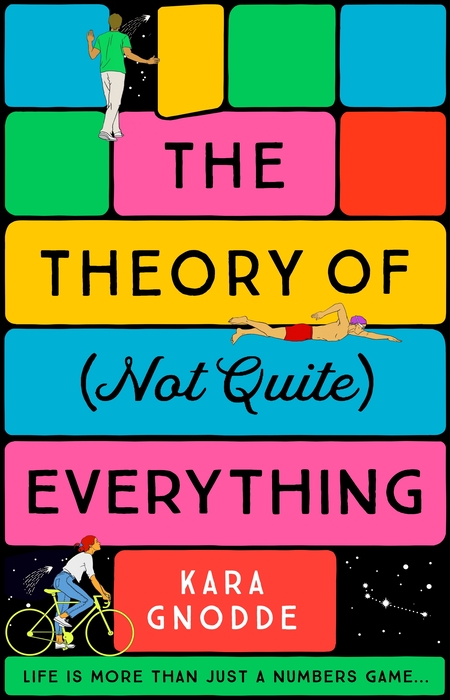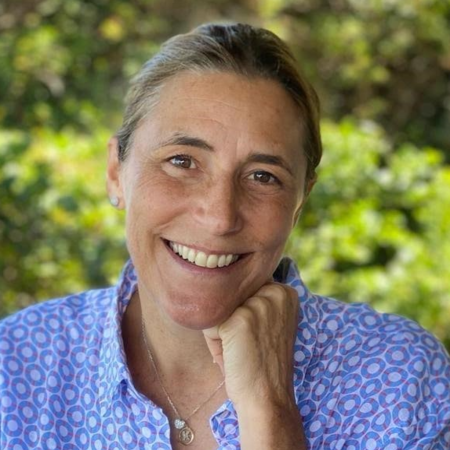Head over heart? Or vice versa?
All of us tend to lean one way or the other, not necessarily wholly but to a sufficient enough extent that our decisions on what to do next in life or whom to see pivot on either a calm analysis of the evidence at hand, all number, facts and calm deduction, or a listen to the heart, emotional impulse that, while never lacking in intelligent forethought, does favour what we feel more than what we know.
In Kara Gnodde’s thoughtfully emotional novel, The Theory of (Not Quite) Everything, heart and mind are definitely in competition in the form of sister and brother Mimi and Art Brotherton, with the younger sister left, following the untimely death of their parents in some sort of motor vehicular mishap, in the position of caring, in a practical sense at least for her older brother, and talented mathematician, Art.
A gifted man, Art is at King’s College London, dedicated to exploring an as-yet-unsolved mathematical problem, p versus np, whose resolution would be a gamechanger for a host of things in the world including security systems, but he is manifestly unable to handle many of the more prosaic things in life, like making supper or attending to a host of domestic demands.
His is a world of rarefied mathematical theorising, a place where logic rules and there is nothing that can’t be solved with calm, deductive reasoning, an approach to life that surely can’t be applied to something as wildly impulsive and chemistry-driven as falling in love.
It might not be possible to know love when you see it, or for Art ever to imagine what it might feel like — romantic love, anyway. But the love she felt for her brother as his face lit up, when he realized how useful he’d be; he looked suffused with pleasure. His smile folded in that way of his when he was overcome. ‘I see,’ he said. She loved him so much she wondered why life with him wasn’t enough.
But in Art’s rigidly safe view of the world, romance is definitely something that marches to the beat of an algorithmic drum and when Mimi, chafing at the close bond she shares with Art – while simultaneously uncertain what she would do without it since it is just her and Art against the world, family-wise at least; she at least has her bestie Rey, an old family friend while her brother has his doctoral assistant Ernest for support – decides she’d like to find love, Art the 0s and 1s Cupid springs into action.
Mimi is doubtful that algorithms can’t help in matters of the heart but she bows to Art’s insistent enthusiasm for his more reasoned approach, stipulating that Mimi must meet a certain number of men, a critical mass if you like, before she can truly know she has found her soulmate.
But then Mimi meets the delightful Frank at a maths conference – she’s attending to support Art who needs her social support at just about every juncture – and all bets are off, with Mimi quickly falling for the man who’s sweetly supportive and who offers the chance of a life not quite so closely entwined with her brother.
She loves Art but he is a lot, and Frank is the opportunity she’s been looking for to forge her own life while still staying close to her brother and she doesn’t want to give him up; Art, however, sees Frank, with whom he strikes up a rather fragile friendship based on cricket and awkward conversation, as a threat on multiple levels, a stance which sees him going to all manner of strange, worrying and occasionally, bafflingly funny lengths to prove algorithms, not Frank, pave the way to lifelong happiness.
A novel whose breathlessly quirky title belies a book that’s altogether emotionally darker and more intense than you might be expecting, The Theory of (Not Quite) Everything is a cleverly insightful book that weaves a tale of sibling love, past trauma and possible future romantic happiness together to deliver a story that is utterly engaging from the first page.
In fact, from being the idiosyncratic story of healing from grief or finding love and second chances that you might be expecting, though they are definitely part of the story, The Theory of (Not Quite) Everything goes far deeper into the human condition, asking whether we are better to rely on heads or our hearts?
Is there in fact any way that one way can rule over the other, or do they blend together in such a way that separating one from the other is next to impossible?
There’s no doubt that we usually tip one way or the other, but life has a defy of abhorring clean boundaries and easily-defined decisions, and so while we may favour one approach to life or the other, it’s hard to make decisions as simply as Art might think they can be made.
‘It’s a lot to take in,’ says Ernest, looking at his watch. ‘phew, it’s past nine. Supper will be here soon.’ Silence settles between them.
‘I hope he’s right about this,’ says Ernest after a while.
‘Oh god,’ says Mimi. ‘I pray he’s wrong.’
Mimi for her part just wants some freedom to be her own person; she loves Art but she needs some space where she can be her own person, to know she is love for who she is and not simply as the sister of the older brother who needs lots of caring and shepherding through life or the child who was expected to stand dutifully by while her parents while they tended to Art.
She wants her moment in the town, and being an emotional sort of person, thinks, at first that it can be as easy as meeting Frank, liking him a lot and giving life centred around him a go.
But Gnodde makes it insightfully and empathetically clear that nothing we do is ever that simple, and much of The Theory of (Not Quite) Everything explores how hard it can be to get to an envisioned happy-ever-after, assuming it’s possible to get there at all.
Filled with characters whose groundedness and humanity is on full show at every turn, and life quandaries that feel affectingly real, The Theory of (Not Quite) Everything is a beautiful piece of work that embraces the fact that life is full of past trauma, present difficulties and future hopefulness but which also acknowledges in way that will seize your heart that navigating your way through all those life tenses can be tricky, fraught and not as easy as we’d like to think.
Possessed of a warm and generous spirit, The Theory of (Not Quite) Everything doesn’t offer up easy endings (thought that doesn’t mean they’re unhappy) or simple solutions but it does offer hope, love and the power of connection to find a way through the most intractable of situations, promising that while the journey may be challenging, and not solely solved by head or heart, the destination might be just what you’re looking for, even so.

